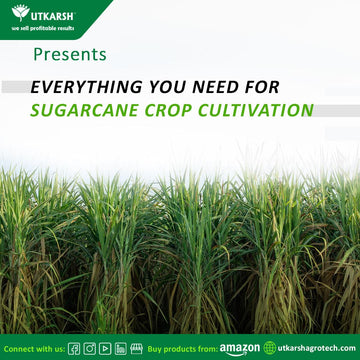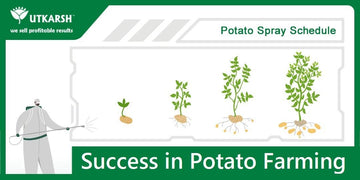
THE ONION FARMING
The onion is the most political of vegetables — elections have been won and lost on its prices, and politicians continue to shed tears over them, in empathy and in pain. Onion or Allium Cepa belongs to the family Amaryllidaceae. It is a bulbous plant with bulbs, and leaves have a waxy coating on the surface.
Demand for onion has presumed the nature of necessity like staple foods. Further, Indian consumers have a very strong preference for newly harvested onions. Onion Farming is also profitable in India.Onion also possesses many health benefits including fighting cancer, nourishing hair, and oral health.
Soil and Climate:
The best soil for successful onion farming/cultivation is deep, friable loam and alluvial soils with moisture-holding capacity and sufficient organic matter. Onion crops can be grown successfully on heavy soil with the application of organic manure before planting, and preparation of the field for onion cultivation should be done well. The optimum pH range, regardless of soil type, is 6.0 – 7.5, but onion farming can also be done in mild alkaline soils.
Onion is a temperate crop but can also grow well under a wide range of climatic conditions such as temperate, tropical, and subtropical climates. The best performance can be obtained in mild weather without any of the extremes. However, the onion plant is hardy and in the young stage can withstand freezing temperatures also. The ideal temperature for the vegetative phase and bulb development is 13-24˚C and 16-25˚C, respectively. It requires about 70% relative humidity for adequate growth. It can grow well in places where the average annual rainfall is 650-750 mm with good distribution in the monsoon season. Areas with low (< 650 mm) or heavy rainfall (>750 mm) are not particularly suitable for the rain-fed crops.
| Season | Time of seed sowing | Time of transplanting | Time of harvesting |
| Early kharif | Feb-March | April-May | Aug-Sept |
| Kharif | May-June | July-Aug | Oct-Dec |
| Late Kharif | August-Sept | Oct-Nov | Jan-March |
| Rabi | Oct-Nov | Dec-Jan | April-May |
Different Stages of Onion Farming
Nursery stage:

The seeds are usually sown on raised beds of approximately 1.2 m width and 3-4 m length. The seedlings usually get ready for transplanting after 45-50 days of sowing.
Microbes should be used 7 days after sowing. It is a combination of Fungus and Bacteria for Growth and Protection.
Roots multiplier are to be used 14 days after sowing for quick hairy root formation.
Basal stage:

It is the first or the base stage that takes place in onion farming. It occurs before sowing.
Marvelz-G is used as a bio fertilizer and growth enhancer.
Magnesium sulphate is to be used as a fertilizer.
After the new leaf start stage:
In this stage, the seedlings work hard to form leaves. The first true leaf appears, which is a smaller version of the flat green leaves seen on a mature onion plant.
6 days after transplantation, a roots multiplier should be used, for quick roots formation.
When it’s been 8 days after transplantation, utilization of horse power should be done for quick maturity of stem and trunk of plants and trees.
10 days after transplanting, microbes should be used for the growth and protection of the plant.
Manuring and Fertilization:
Fertilizer schedule for onion (per ha)
Kharif onion (Yield potential – 25-30 t/ha)
| Schedule | N | P2O5 | K20 | Organic manures |
| Basal | 25kg | 40kg | 40kg | Organic manures equivalent to 75kg N |
| 30 DAT | 25kg | – | – | |
| 45 DAT | 25kg | – | – | |
| Total | 75kg | 40kg | 40kg |
Late Kharif and Rabi onion (Yield potential- 40-50 t/ha)
| Schedule | N | P2O5 | K2O | Organic manure |
| Basal | 40kg | 40kg | 60kg | Organic manure equal to 75kg N |
| 30 DAT | 40kg | – | – | |
| 45 DAT | 35kg | – | – | |
| Total | 110kg | 40kg | 60kg |
Long day onion (Yield potential-100 t/ha)
| Schedule | N | P2O5 | K2O | Organic manure |
| Basal | 60kg | 60kg | 70kg | Oranic manure equal to 75kg N |
| 30 DAT | 60kg | – | – | |
| 45 DAT | 60kg | – | – | |
| Total | 180kg | 60kg | 70kg |
One third of recommended N and full dose of P2O5 and K2O are applied at the time of planting while remaining two third N is applied in two equal splits at 30 and 45 days after planting.
Spraying:

Stress free should be sprayed 15 days after transplantation for better photosynthesis and nutrition intake.
Double combi is a foliar spray which should be used to prevent mix crop deficiencies.
Soil application:

To prevent soil borne diseases, microbes should be used 35 days after transplantation.
Tuber bulking:
Tuber bulking is when tuber cells expand to become the dominant site for deposition of carbohydrates and inorganic nutrients.
Bhim plus and f-enhancer should be used to enhance the quality of fruits and flowers of the plant.
Irrigation management:
Irrigation requirement of onion farming depends on various things including the season, soil type, method of irrigation and age of the crop.
Irrigation needs to be stopped when the crop reaches maturity (10-15 days before harvest) and the top starts falling which helps in reducing the rotting during storage. Modern irrigation techniques such as drip and micro sprinkler irrigation help in saving irrigation water and improve the bulb yield significantly.
Fertigation:
Fertigation is an efficient method of applying fertilizers through drip irrigation. The drip irrigation system helps in water saving as well as reduces nitrogen losses by leaching into ground water, fertilizer nutrients are applied in root zone only.
Harvesting:
Onion is harvested according to the purpose for which the crop is planted. Dry onion is ready for harvest in five months. However, for marketing as green onion, three months are required for the crop to get ready.
The leafy green tops become yellow and eventually collapse at a point a little above the top of the bulb.
When the tops “go down” in this way, the bulbs are ready for harvesting.
Best time to harvest rabi onion is one week after 50% tops have fallen over. Onions for sale as dried bulbs or for storage should be harvested after tops have started falling over.
Yield:
Irrigated onion crop in rabi season gives a yield of approximately 25-30 t/ha whereas under rain-fed conditions it gives a yield of 0.7-1.0 t/ha. The small sized, pungent, local cluster type onion yields half in comparison with the large sized varieties.
Storage:
Onions are stored in a ventilated place with ample aeration and sunlight. Onion bulbs are stored in perforated gunny bags.
To get a fruitful yield from onion farming, follow the procedure and steps mentioned above
To know more about profitable onion farming, Watch our webinar recording of Onion Farming:
Also, get a tremendous discount of upto 70% off on onion farming kit.
Simply order the number of 1-Acre-Kits as per the size of your farm and get the entire range of requirements covered in it.
Simply select the kit, that’s it. => Lesser Cost & Higher Profitability.
To shop a onion farming kit Click on this : https://utkarshagro.com/product-category/kits/


At Utkarsh, we are proud of our rich heritage of harvest festivals and to make every farmer around the country happy to be a part of these festivals, we have spent years researching and coming up with the best products that will result in a fruitful yield of each crop you plan to grow.
Visit our Website: https://utkarshagro.com/
Email ID: rd@utkarshagro.com
Stay connected with us to learn more tips and tricks. All you have to do is follow us here:
Chat: wa.me/919824133044
Facebook: https://www.facebook.com/utkarshagrochem/
Instagram: https://www.instagram.com/utkarshagrochem/
Twitter: https://twitter.com/UAgrochem
LinkedIn: https://www.linkedin.com/company/utkarsh-agrochem-pvt-ltd/
YouTube: https://www.youtube.com/utkarshagrochem
Amazon Brand Store: https://bit.ly/UtkarshAmazon
All the products mentioned in this blog can be found on Amazon as well as the website of Utkarsh. Also, the method of application and the required dose can be easily found on our Website – Utkarshagro.com/shop.
If you have any queries, feel free to reach out to us on 919824133044, +919924864422, +919824300544
Landline: 02621-255972
Written by:
Manya Jobanputra
Affiliate Writer with Monkey Ads





